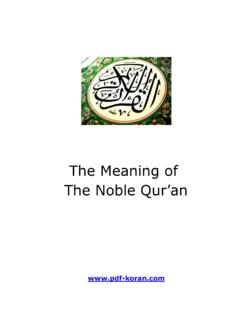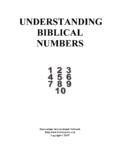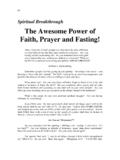Transcription of THE HOLY QURAN (KORAN) - QURAN DOWNLOAD
1 THE holy QURAN (KORAN) english Translation of the Meanings and Verse Notes by Abdullah Yusuf Ali Formatting By William B. Brown iTable of Contents Table of i SURA 1 SURA 2 SURA 72 SURA 103 SURA 140 SURA 166 SURA 195 SURA 234 SURA 247 SURA 273 SURA 292 SURA 313 SURA 343 SURA 353 SURA 363 SURA 375 SURA 399 SURA 423 SURA 443 SURA 456 SURA 475 SURA 493 SURA 508 SURA 520 SURA 536 SURA 548 SURA 565 SURA 579 SURA 596 SURA 609 SURA 622 SURA 629 SURA 635 SURA 654 SURA 666 iiSURA 677 SURA 691 SURA 708 SURA 721 SURA 735 SURA 750 SURA 760 SURA 772 SURA 783 SURA 790 SURA 795 SURA 802 SURA 808 SURA 815 SURA 819 SURA 825 SURA 832 SURA 839 SURA 845 SURA 851 SURA 858 SURA 865 SURA 872 SURA 878 SURA 885 SURA 889 SURA 892 SURA 895 SURA 897 SURA 900 SURA 904 SURA 908 SURA
2 914 SURA 920 SURA 926 SURA 930 SURA 933 SURA 938 iiiSURA 941 SURA 947 SURA 950 SURA 954 SURA 958 SURA 962 SURA 967 SURA 970 SURA 974 SURA 976 SURA 979 SURA 982 SURA 984 SURA 986 SURA 989 SURA 991 SURA 995 SURA 997 SURA 999 SURA 1002 SURA 1004 SURA 1005 SURA 1006 SURA 1009 SURA 1009 SURA 1011 SURA 1012 SURA 1013 SURA 1014 SURA 1015 SURA 1015 SURA 1016 SURA 1017 SURA 1017 SURA 1018 SURA 1019 SURA 1019 SURA 1020 ivSURA 1020 SURA 1021 SURA 1022 1 SURA 1 1. SURA 1. Fatiha, or the Opening Chapter. In the name of Allah, Most Gracious, Most Merciful. 15. Each chapter or portion of the Koran is called a Sura, which means a Degree or Step by which we mount up. Sometimes whole Suras were revealed, and sometimes Portions which were arranged under the Prophet's directions.
3 Some Suras are long, and some are short, but a logical thread runs through them all. Each verse of the Sura is called an Ayat, which means also a sign. A verse of revelation is a Sign of Allah's wisdom and goodness just as much as Allah's beautiful handiwork in the material creation or His dealings in history are signs to us, if we would understand. Some Ayats are long, and some are short. The Ayat is the true unit of the Koran. 16. Al-Fatiha = Opening Chapter. 17. These seven verses form a complete unit by themselves, and are recited in every prayer and on many other occasions. Cf. Sura 15:87. 18. By universal consent it is rightly placed at the beginning of the Koran as summing up in marvelously terse and comprehensive words, man's relation to Allah in contemplation and prayer.
4 In our spiritual contemplation the first words should be those of praise If the praise is from our inmost being, it brings us closer to Allah. Then our eyes see all good, peace, and harmony. Evil, rebellion, and conflict are purged out. They do not exist for us, for our eyes are lifted up above them in praise. Then we see Allah's attributes better (verses 2-4). This leads us to the attitude of worship and acknowledgment (verse 5). And finally comes prayer for guidance, and a contemplation of what guidance means (verses 6-7). Allah needs no praise, for He is above all praise; He needs no petition, for He knows our needs better than we do ourselves; and His bounties are open without asking, to the righteous and the sinner alike. The prayer is primarily for our own spiritual education consolation, and confirmation.
5 That is why the words in this Sura are given to us in the form in which we should utter them. 19. The Arabic words "Rahman" and "Rahim " translated "Most Gracious" and "Most Merciful" are both intensive forms referring to different aspects of Allah's attribute of Mercy. The Arabic intensive is more suited to express Allah's attributes than the superlative degree in english . The latter implies a comparison with other beings, or with other times or places, while there is no being like unto Allah. Mercy may imply pity. long-suffering, patience, and forgiveness, all of which the sinner needs and Allah Most Merciful bestows in abundant measure. But there is a Mercy that goes before even the need arises, the Grace which is ever watchful. and flows from Allah Most Gracious to all His creatures, protecting them, preserving them, guiding them, and leading them to clear light and higher life.
6 Opinion is divided whether the Bismillah should be numbered as a separate verse or not. It is unanimously agreed that it is a part of the Koran in Sura An-Naml. Therefore it is better to give it an independent number in the first Sura. For subsequent Suras it is treated as an introduction or head-line, and therefore not numbered. 2. Praise be to Allah, The Cherisher and Sustainer of the Worlds; 20. The Arabic word 'Rabb', usually translated Lord, has also the meaning of cherishing, sustaining, bringing to maturity. Allah cares for all the worlds He has created. 3. Most Gracious, Most Merciful; 2 4. Master of the Day of Judgment. 5. Thee do we worship, and Thine aid we seek. 21. On realizing in our souls Allah's love and care. His grace and mercy, and His power and justice (as Ruler of the Day of Judgment), the immediate result is that we bend in the act of worship, and see both our shortcomings and His all-sufficient power.
7 The emphatic form means that not only do we reach the position of worshipping Allah and asking for His help, but we worship Him alone and ask for His aid only. For there is none other than He worthy of our devotion and able to help us. The plural "we" indicates that we associate ourselves with all who seek Allah, thus strengthening ourselves and strengthening them in a fellowship of faith. 6. Show us the straight way, 22. If we translate by the english word "guide", we shall have to say: Guide us to and in the straight Way". For we may he wandering aimlessly, and the first step is to find the way; and the second need is to keep in the Way: our own wisdom may fail in either case. The straight Way is often the narrow Way, or the steep Way, which many people shun (Sura 90:11).
8 By the world's perversity the straight Way is sometimes stigmatized and the crooked Way praised. How are we to judge? We must ask for Allah's guidance. With a little spiritual insight we shall see which are the people who walk in the light of Allah's grace, and which are those that walk in the darkness of Wrath. This also would help our judgment. 7. The way of those on whom Thou hast bestowed Thy Grace, Those whose (portion) is not wrath, and who go not astray. 23. Note that the words relating to Grace are connected actively with Allah: those relating to Wrath are impersonal. In the one case Allah's Mercy encompasses us beyond our deserts In the other case our own actions are responsible for the Wrath,-the negative of Grace, Peace, or Harmony. 24. Are there two categories?
9 -Those who are in the darkness of Wrath and those who stray? The first are those who deliberately break Allah's law; the second those who stray out of carelessness or negligence. Both are responsible for their own acts or omissions. In opposition to both are the people who are in the light of Allah's Grace: for His Grace not only protects them from active wrong (if they will only submit their will to Him) but also from straying into paths of temptation or carelessness. The negative 'gair' should be construed as applying not to the way, but as describing men protected from two dangers by Allah's Grace. SURA 2 1. SURA 2. Baqara, or the Heifer. In the Name of Allah, Most Gracious, Most Merciful. 25. These are abbreviated letters, the Muqatta'at on which a general discussion will be found in Appendix I.
10 The particular letters, , are found prefixed to this Sura, and Suras 3, 29, 30, 31, 32 (six in all). Much has been written about the meaning of these letters, but most of it is pure conjecture. 2. This is the Book; in it is guidance sure, without doubt, to those who fear Allah; 26. Taqwa, and the verbs and nouns connected with the root, signify: (1) the fear of Allah, which, according to the writer of Proverbs (Sura 1:7) in the Old Testament, is the beginning of Wisdom; 3 (2) restraint, or guarding one's tongue, hand, and heart from evil; (3) hence righteousness, piety, good conduct. All these ideas are implied: in the translation, only one or other of these ideas can be indicated, according to the context. See also Sura 47:17; and 74:56 Verse note 5808.








